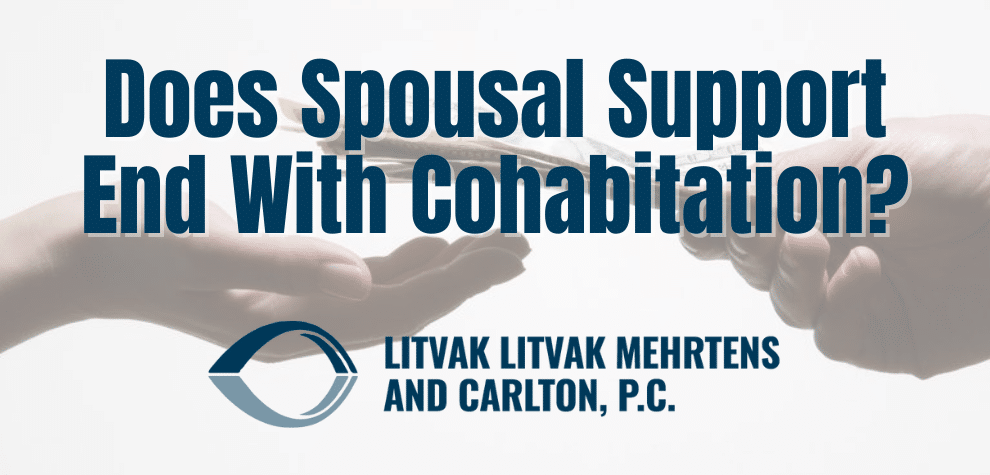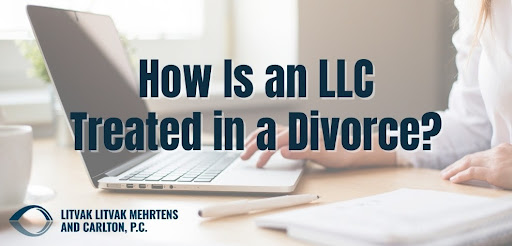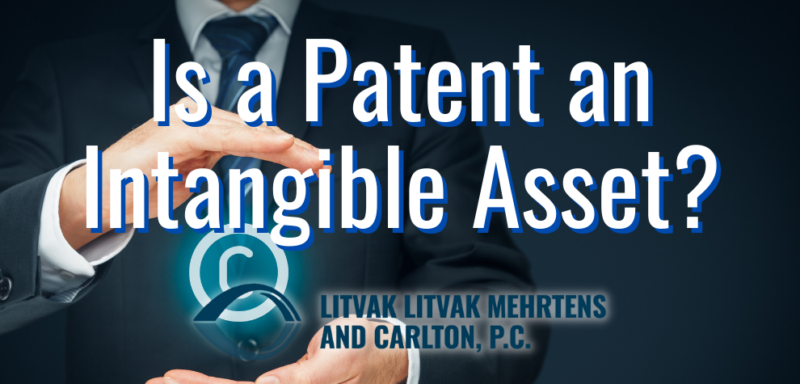One of the most important topics to many going through the divorce process is spousal support after remarriage. How does remarrying or just living with another person affect their alimony? While it may seem tricky at first, this question actually comes up a lot from many of our clients. Therefore, this topic is not an uncommon occurrence to discuss during divorce proceedings.
At Litvak Litvak Mehrtens and Carlton, P.C., we handle a variety of cases involving divorce in Colorado. With as much experience as we have in these cases, we’ll assign the right Denver divorce attorney to your case. Whether you want to learn ahead of time about how living with someone affects alimony or if you need an attorney after the fact, we’re here for you. To get in touch with a qualified attorney, schedule a consultation with us at 303-951-4506 today.
What Is Alimony?
Spousal support, or alimony, is a court-ordered payment from one spouse to another after divorce. Alimony in Colorado intends to provide for both ex-spouses financially both during and after the divorce proceedings. Unless the two spouses come to a different agreement, judges determine whether or not alimony is necessary and appropriate. Then, the judge also determines the alimony amount, frequency of payments, and duration of the payments.
In general, those who need alimony request one of the following forms of spousal support:
- Temporary spousal support while the divorce is pending
- Rehabilitative alimony which covers expenses for one spouse until they can support themselves
- Reimbursement from one spouse to the other for education expenses or work advancements
- Permanent alimony, which generally occurs when the court believe the recipient to be unable to support themselves financially
Keep in mind that judges take into consideration the specifics of your case. If necessary, they order monthly alimony payments. In other cases, however, alimony comes in the form of lump-sum or property exchange payments. You will find the terms of the alimony agreement in the final divorce decree. Should you or your spouse’s situation change before the end date of the alimony agreement, you can request a formal review from the court.
What Is the Purpose of Alimony?
Alimony intends to limit possible unfair economic effects brought on by divorce. It provides income to ex-spouses who either earn low wages or even no wage at all. One justification is that sometimes, one spouse chooses not to have a job or career in order to take care of and support the family. In other words, after a divorce, they likely need time to develop the necessary job skills to support themselves. Another reason is that alimony could help one spouse keep up their standard of living that they had during the course of their marriage. This is despite the changes to taxes, income, etc. due to the divorce.
What is Cohabitation in Colorado?
In order for Colorado courts to consider that two individuals are cohabiting, certain conditions must be met. Spousal support after remarriage and/or cohabitation changes drastically. For this reason, it’s important to understand how your financial situation might be impacted by a change in spousal support. Mutually supportive, intimate personal relationships where a couple shares responsibilities that most people associate with marriages or civil unions are called cohabitation. However, unlike the name suggests, it is not necessary to live together full time to cohabitate.
Instead, courts consider the following factors while determining whether or not two people engage in cohabitation:
- The couple shares finances such as joint bank accounts, shared holdings, or liabilities
- They share responsibility for living expenses
- Recognition from the family and friends of their cohabitation
- Whether or not the two people actually live together, plus the frequency of their interactions and the duration of their relationship
- If they split up household chores and responsibilities
- Other relevant evidence
Does Cohabitation Affect Spousal Support?
Sometimes. Different states have different standards which determine whether or not cohabitation or spousal support after remarriage changes or terminates completely. Importantly, you and your attorney should go over both the settlement agreement and divorce judgment. In many cases, one or both of these sources will address alimony in cases where the spouse remarries or begins cohabiting. However, in cases where neither of those sources covers this issue, you will turn to the laws of your state.
Does Spousal Support After Remarriage End in Colorado?
Yes. Once the ex-spouse receiving alimony payments remarries or establishes a civil union with another person, they no longer have the right to alimony.
Does Cohabitation Terminate Spousal Support in Colorado?
No. Simply cohabiting with someone is not enough to terminate spousal support in Colorado. However, the paying spouse has the right to file a motion to terminate the payments with the court. In this case, they must prove that their ex-spouse’s financial needs no longer exist as a result of cohabitation.
Does Alimony Stop When You Live With Someone?
Sometimes, the courts do terminate alimony payments after you start living with someone else. However, this depends largely on the laws of your state, plus any agreements you and your ex-spouse came to during the divorce proceedings. Many states either reduce or terminate alimony payments if the ex-spouse’s cohabitation decreases or eliminates the need for alimony. Others terminate alimony regardless of a change in the need for financial support. In Colorado, however, cohabitation does not automatically terminate alimony. There is an option for the paying spouse to file a motion with the court to terminate the alimony payments, however. They must then prove that the receiving ex-spouse no longer financially depends on the alimony.
Spousal Support After Remarriage
As soon as the spouse receiving alimony remarries, they forfeit the right to receive alimony payments. It is not necessary for the paying spouse to file a motion to terminate alimony. This also applies to established civil unions.
Contact the Denver Family Lawyers at Litvak Litvak Mehrtens and Carlton, P.C.
If you have questions about spousal support after remarriage or alimony changes during cohabitation, you need an experienced Colorado divorce attorney on your side. At Litvak Litvak Mehrtens and Carlton, P.C., we have the knowledge and experience necessary to answer questions about your case. No matter the family law situation, we’re here to help. To schedule a consultation with a qualified attorney, please call our Denver office at 303-951-4506 today.






